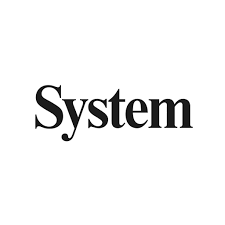
The Importance of Systems in Modern Society
In today’s fast-paced world, systems play a crucial role in ensuring efficiency, organization, and functionality across various domains. A system can be defined as a set of interconnected components working together to achieve a common goal or purpose.
Types of Systems
There are different types of systems that exist, ranging from biological systems found in nature to complex technological systems designed by humans. These systems can be categorized into open systems that interact with their environment and closed systems that operate independently.
Applications of Systems
Systems are prevalent in all aspects of our lives, from transportation and communication networks to healthcare and education systems. They provide structure and order, enabling processes to run smoothly and effectively.
Benefits of Systems Thinking
Adopting a systems thinking approach allows us to understand the interconnectedness of various elements within a system. By analyzing how different components interact and influence each other, we can identify opportunities for improvement and innovation.
The Future of Systems
As technology continues to advance, the complexity of systems will also increase. It is essential for individuals and organizations to adapt to this changing landscape by embracing new methodologies and tools for designing, managing, and optimizing systems.
In Conclusion
Systems are the backbone of modern society, providing structure and organization to diverse fields. By recognizing the importance of systems and leveraging their potential, we can drive progress, innovation, and sustainable development for the future.
7 Essential Tips for Maintaining a Secure and Efficient System
- Regularly update your system to ensure optimal performance and security.
- Backup your data regularly to prevent loss in case of system failure.
- Install reputable antivirus software to protect your system from malware and viruses.
- Organize your files and folders systematically for easier access and management.
- Avoid downloading software from untrusted sources to prevent potential harm to your system.
- Monitor your system’s performance using task manager or similar tools to identify and address any issues promptly.
- Set up strong passwords and enable two-factor authentication for enhanced security.
Regularly update your system to ensure optimal performance and security.
Regularly updating your system is essential to maintain optimal performance and security. By installing the latest software updates and patches, you can address vulnerabilities, improve system stability, and enhance overall functionality. Keeping your system up-to-date not only helps prevent cyber threats and malware attacks but also ensures that you are benefiting from the latest features and improvements offered by developers. Make it a habit to check for updates regularly to safeguard your data and maintain peak performance of your system.
Backup your data regularly to prevent loss in case of system failure.
Regularly backing up your data is a crucial practice to safeguard against potential loss in the event of a system failure. By creating backups of your important files and information on external drives, cloud storage, or other secure platforms, you can ensure that you have a copy available to restore and recover from any unexpected technical issues. This proactive approach not only protects your valuable data but also provides peace of mind knowing that you have a safety net in place to mitigate the impact of system failures.
Install reputable antivirus software to protect your system from malware and viruses.
Installing reputable antivirus software is essential to safeguard your system from potential threats such as malware and viruses. By having reliable antivirus protection in place, you can proactively detect and remove malicious software, ensuring the security and integrity of your system. Regularly updating your antivirus software and running system scans can help prevent cyber attacks and data breaches, providing peace of mind knowing that your system is well-protected against online threats.
Organize your files and folders systematically for easier access and management.
Organizing your files and folders systematically is essential for efficient access and management of data. By structuring your digital storage in a logical manner, you can easily locate specific files when needed, saving time and reducing the risk of information overload. Creating a clear hierarchy, labeling folders appropriately, and maintaining consistency in naming conventions can streamline your workflow and enhance productivity. Embracing systematic organization not only improves accessibility but also promotes better file management practices for a more organized digital environment.
Avoid downloading software from untrusted sources to prevent potential harm to your system.
It is advisable to refrain from downloading software from untrusted sources to safeguard your system from potential harm. By exercising caution and only obtaining software from reputable sources, you can reduce the risk of introducing malicious programs or malware that could compromise the security and performance of your system. Prioritizing safety measures when downloading software helps maintain the integrity of your system and protects your data from unauthorized access or cyber threats.
Monitor your system’s performance using task manager or similar tools to identify and address any issues promptly.
Monitoring your system’s performance is essential to ensure smooth operation and identify any potential issues promptly. By utilizing tools like Task Manager or similar monitoring software, you can track key metrics such as CPU usage, memory consumption, and network activity. This proactive approach allows you to detect bottlenecks, anomalies, or resource-intensive processes that may be affecting your system’s performance. By monitoring regularly and addressing any issues in a timely manner, you can optimize your system’s efficiency, enhance its reliability, and prevent potential disruptions in your workflow.
Set up strong passwords and enable two-factor authentication for enhanced security.
In order to bolster security measures, it is advisable to establish robust passwords and activate two-factor authentication. By setting up strong passwords that are unique and complex, users can significantly reduce the risk of unauthorized access to their accounts. Additionally, enabling two-factor authentication adds an extra layer of protection by requiring a secondary verification step, such as a code sent to a mobile device, further enhancing the security of online accounts and sensitive information.
